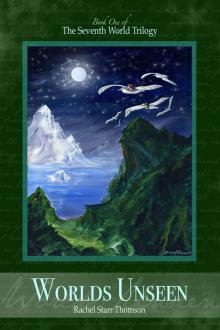Mister Impossible, Maggie Stiefvater [uplifting novels txt] 📗

- Author: Maggie Stiefvater
Book online «Mister Impossible, Maggie Stiefvater [uplifting novels txt] 📗». Author Maggie Stiefvater
He was sixteen. Farooq-Lane was clueless.
She was clueless even though scissors were Nathan’s thing. He drew them in his sketchbooks. Hung them on his walls and over his bed. Hung them over her bed until she made him take them down. They were enough of his thing that she remembered mentioning the presence of the scissors to him as the rumors flew through the school, because she thought he’d find it curious.
But no part of her thought: Nathan killed Jason Mathai.
And definitely no part of her thought: I need to tell someone before he kills twenty-two others.
Later, the murders made the news. The journos tried out several names for the mysterious killer. The Cutter. The Mad Tailor. The Cloth Butcher. The Scissors Killer. None of them stuck. It would have been different if the killer had murdered the victims with scissors, but all of them had been killed by bizarre explosive devices.
Farooq-Lane knew none of this; she didn’t have time to read news like that. She’d gone to college and found new clubs. Then she’d graduated and found a landlord and Alpine Financial, which was kind of like a club, but for adults.
If she’d been paying attention, would she have noticed it? Her job was patterns, systems, analyzing the past to create better futures. Twenty-three murders was a lot of data.
But maybe it wouldn’t have mattered.
You want everything to make sense, but things don’t, Nathan had told her once. You fall in love with everything that makes sense and ignore everything that doesn’t.
After her parents’ death, the FBI had shown her the manifesto they’d found tucked in his junior-year yearbook. It was nothing like the crisp, well-spoken brother she thought she knew. Instead, it wandered and fretted and threatened and despaired.
The Open Edge of the Blade
by Nathan Farooq-Lane
Only the open edge of the scissor blade is pure.. Once it has closed it has exhausted its potential.. Purity is apartness.. Purity is potentiality.. So much of the world is dull too dull to ever cut.. Or was once open and is now closed.. The dull scissors were never scissors they were only lawn ornaments.. They are scissor-shaped but they were never going to have a purpose.. They are no better or worse than the closed scissors.. The closed scissors are also no longer scissors because they once could cut but now are closed.. All that is important is the open edge of the blade which is still pure.. These are the blades that have purpose.. Purity is purpose.. Purpose is purity.. There is no room for the shears to open if there are too many closed scissors in the box.. Making room means deletion.. Not cutting because cutting leaves pieces and pieces take room, just different room.. Deletion is erasure which makes space for the open edge of the blade..
And so on for a dozen typed pages.
Had Nathan Farooq-Lane made sense?
She’d asked herself since then if there had been something about his external self that would have allowed her to predict this internal self. She asked herself if her parents would still be alive if she had. But he was one system she’d never been able to fit into a spreadsheet.
Later, the Moderators had found her and told her Nathan was a Zed, someone who could take things out of his dreams, and that all the peculiar explosive devices had actually been dreams.
“I know it can be hard to believe,” Lock had said.
But Nathan had killed twenty-three people starting at age sixteen. She could believe anything about him now. What she’d actually thought then was: The Moderators would have had to kill him at age fifteen to save all those lives.
“Well, this is creepy as hell,” Lock rumbled.
The leader of the Moderators was tanklike as he powered down a hall in the West Virginia Museum of Living History. Broad shoulders. Fat-soled athletic shoes crunching debris beneath them. Everywhere Lock’s flashlight beam illuminated looked war-torn. Hanging ceiling tiles. Peeling paint. Faded, knocked-over furniture.
The ruined museum was unsettling, but Lock wasn’t talking about that. He was talking about the mannequins.
Someone had filled the hall with a troupe of mannequins from the museum exhibits. Recently. Everything here was covered with great, soft layers of dust, but the mannequins had handprints all over their arms and chests. Fresh. A few days old at most. Farooq-Lane shone her flashlight on each as she passed. Sailor. Baker. Homemaker. Policeman. A Zed could stand among them and the Moderators wouldn’t know until they were on top of them.
“Oh, come on,” said one of the other Moderators, delivering a sudden kick at the homemaker. The mannequin heaved to the side, heavier than expected, and fell into the arms of a surprisingly sturdy train conductor with mismatched eyes. “There’s no Zed here. We’d already be completely screwed if there was.”
The Moderator wasn’t wrong. Every recent encounter with the Zeds had ended the same as the encounter with the Zed in the Airstream, with the Moderators defeated and confused, and generally feeling like absolute idiots. These new Zeds were boggling their minds. Literally. Farooq-Lane understood that even this ruse of mannequins was mostly to play with their heads. It wouldn’t stop the Moderators for long—it was just to unsettle them. It was Nathan’s scissors.
Lock shone a flashlight into a mannequin’s face. It was a chef. He—Lock, not the chef—said, “The Visionary saw us confronting the Zeds in her vision. That means we’re supposed to be successful in the future, only it gets changed. We will find a way through this.”
“Where is the Visionary anyway?” one of the other Moderators asked, a little nervously. The other Moderators were all very afraid Liliana was going to blow them up. A reasonable fear. She’d accidentally blown up a family of ducks during her last vision.
“She’s waiting in the car,” Farooq-Lane said. “But she’s very stable at





Comments (0)